
-
 Germany battles to secure stricken 'Russian shadow fleet' oil tanker
Germany battles to secure stricken 'Russian shadow fleet' oil tanker
-
Malala Yousafzai 'overwhelmed and happy' to be back in Pakistan

-
 'Education apartheid': schooling in crisis in Pakistan
'Education apartheid': schooling in crisis in Pakistan
-
Smart glasses enter new era with sleeker designs, lower prices
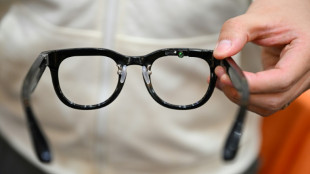
-
 Supreme Court looks poised to uphold TikTok ban
Supreme Court looks poised to uphold TikTok ban
-
2024 hottest recorded year, crossed global warming limit

-
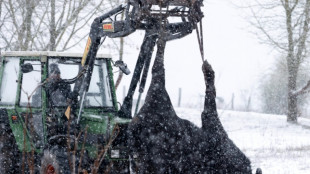 Germany reports foot-and-mouth disease in water buffalo
Germany reports foot-and-mouth disease in water buffalo
-
US hikes reward for Maduro arrest after 'illegitimate' swearing-in

-
 Robots set to move beyond factory as AI advances
Robots set to move beyond factory as AI advances
-
Pro-Russian disinformation makes its Bluesky debut

-
 UK gas reserves 'concerningly low', warns biggest supplier
UK gas reserves 'concerningly low', warns biggest supplier
-
2024 warmest year on record for mainland US: agency

-
 Meta policy reversal puts question mark on future of fact-checking
Meta policy reversal puts question mark on future of fact-checking
-
Meta policy reversal puts question mark on furure of fact-checking

-
 Strong US jobs report sends stocks sliding, dollar rising
Strong US jobs report sends stocks sliding, dollar rising
-
US hiring beats expectations in December to cap solid year

-
 UK gas reserves 'concerningly low': Biggest supplier
UK gas reserves 'concerningly low': Biggest supplier
-
Global stocks mostly fall before US jobs data

-
 Ubisoft: the 'Assassin's Creed' maker targeted by suitors
Ubisoft: the 'Assassin's Creed' maker targeted by suitors
-
Stock markets drift lower as US jobs data looms

-
 Pakistan flight departs for Paris after EU ban lifted
Pakistan flight departs for Paris after EU ban lifted
-
Nobel laureate Malala Yousafzai to visit native Pakistan for girls' summit

-
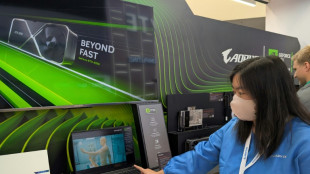 AI comes down from the cloud as chips get smarter
AI comes down from the cloud as chips get smarter
-
Tajikistan bets on giant dam to solve electricity crisis

-
 Uruguay bucks 2024 global warming trend
Uruguay bucks 2024 global warming trend
-
Last 2 years crossed 1.5C global warming limit: EU monitor

-
 Japan 'poop master' gives back to nature
Japan 'poop master' gives back to nature
-
US Supreme Court to hear TikTok ban case
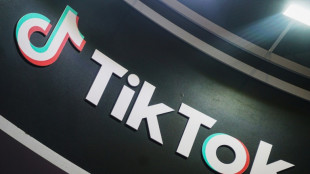
-
 US Fed's December rate cut should be its last for now: official
US Fed's December rate cut should be its last for now: official
-
Paris Hilton among celebrities to lose homes in LA fires

-
 Airbus boosts plane deliveries in 2024
Airbus boosts plane deliveries in 2024
-
Ubisoft reviews restructuring options, postpones new Assassin's Creed

-
 Lamborghini sets new sales record amidst hybrid push
Lamborghini sets new sales record amidst hybrid push
-
Lebanon army chief Aoun becomes president after two-year vacancy

-
 US emissions stagnated in 2024, challenging climate goals: study
US emissions stagnated in 2024, challenging climate goals: study
-
Lebanon army chief short of required majority in first round of president vote

-
 Global stock markets mixed tracking US rates outlook
Global stock markets mixed tracking US rates outlook
-
Lebanon meets to finally elect president after two-year vacancy

-
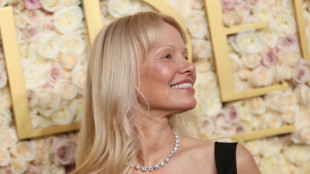 Celebrities flee Los Angeles fires, lose houses as Hollywood events scrapped
Celebrities flee Los Angeles fires, lose houses as Hollywood events scrapped
-
Japan startup hopeful ahead of second moon launch

-
 Ukraine allies to hold last defence meet before Trump takes office
Ukraine allies to hold last defence meet before Trump takes office
-
Myanmar military adopts anti-junta fighters' drone tactics

-
 CES tech looks to help world's aging population
CES tech looks to help world's aging population
-
Rubber tappers forge sustainable future in Amazon

-
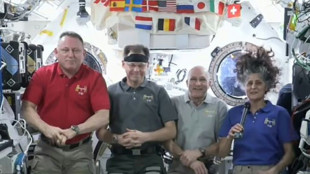 US astronauts upbeat seven months into eight-day mission
US astronauts upbeat seven months into eight-day mission
-
Extreme weather, suburban sprawl fuel LA's wildfires

-
 Political chess or true beliefs? Zuckerberg's surprise Trump pivot
Political chess or true beliefs? Zuckerberg's surprise Trump pivot
-
US Fed officials concerned over 'stalled' disinflation, tariffs: minutes

-
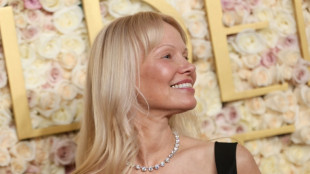 Celebrities flee Los Angeles fires as Hollywood events scrapped
Celebrities flee Los Angeles fires as Hollywood events scrapped
-
Several US Fed officials concerned over 'stalled' disinflation: minutes

| RELX | -0.86% | 46.37 | $ | |
| NGG | -3.3% | 56.13 | $ | |
| GSK | -1.99% | 33.09 | $ | |
| CMSC | -0.79% | 22.92 | $ | |
| BTI | -2.34% | 35.9 | $ | |
| SCS | -3.01% | 10.97 | $ | |
| RIO | 0.36% | 58.84 | $ | |
| VOD | -1.99% | 8.05 | $ | |
| AZN | 0.64% | 67.01 | $ | |
| BCC | -1.31% | 115.88 | $ | |
| BP | 0.54% | 31.29 | $ | |
| RYCEF | -0.42% | 7.07 | $ | |
| BCE | -2.92% | 22.96 | $ | |
| RBGPF | 100% | 60.49 | $ | |
| CMSD | -0.65% | 23.25 | $ | |
| JRI | -1.16% | 12.08 | $ |

Volkswagen reimagines classic camper for the electric age
Seventy years after its first model rolled off the factory line, Volkswagen is reinventing the VW bus, symbol of the hippy movement, for today's climate-conscious generation -- but some of its former afficionados remain to be convinced.
The German automaker will on Wednesday evening unveil the camper's latest iteration, known as the ID.Buzz, part of the flagship ID line with which Volkswagen is leading a multi-billion-euro charge into the electric car market.
Reviving the "icon" was a "priority", group CEO Herbert Diess said recently in a question-and-answer session on the online forum Reddit.
The new model, with its curvy resemblance to the original VW campers that had their hey-day in the 60s and 70s, was a "turning point" for Volkswagen, according to German car market expert Ferdinand Dudenhoeffer.
Alongside the eye-catching passenger bus, Volkswagen will also present a "particularly important" cargo model with a potentially larger market, Dudenhoeffer says.
- Flower power -
The design classic was the inspiration of Dutch importer Ben Pon, whose eye was caught by an employee-built transport vehicle, when he visited the Volkswagen plant in Wolfsburg in 1947.
Following his eureka moment, Pon drafted the first plans and convinced VW to start production in March 1950, christening its second model after the Beetle.
The chubby camper, a symbol of liberty and free-thinking, was particularly successful in the United States, where it was embraced by the Californian surfer community.
The bus has become a pop culture mainstay, transporting Scooby-Doo through his adventures, as well as the cast of the cult independent film "Little Miss Sunshine".
Volkswagen is hoping to build on the camper's positive image. The bus which "contributed to the history of the flower power movement" is now the car "for the Fridays for Future generation" and "hippies of the climate crisis", according to Dudenhoeffer.
- Charging stations -
Winning over classic van-owners to the new electric model however might prove to be a little harder.
The ID.Buzz had "taken on the V-shape" on the bonnet of the original T1 camper, says Melanie Wolf, 33, member of a VW Bus-lovers club in Bavaria.
With her partner Tobias Toplak, 43, she regularly hits the open road in her 1973 camper van model, most recently taking it on a tour of Norway.
"I am interested to see how Volkswagen pulls off the mash-up between the hipster world and the 'Bulli' mindset," says Tobias, using the camper's affectionate German nickname.
The spirit of "liberty and independence" on four wheels was difficult to match with the limited autonomy offered by electric motors, which need to be recharged, he says.
While there are no official figures, the ID.Buzz's range has been estimated at about 400 kilometres (250 miles) by the German motoring association ADAC.
"In the most beautiful places, when you spend the night in the middle of nowhere, there won't be charging points even in another 20 years," says Roland Graebner, 52, who owns a quartet of old campers with which he has "crossed Europe".
The fossil fuel-powered models "are just so flexible", his partner Britta Kellermann, 53, says, even though she finds the electric model "fascinating".
With the ID.Buzz "the adventures you can have will certainly be different", concludes Hans Toma, 62, proud owner of a T2 camper from the late-70s.
P.Kolisnyk--CPN
